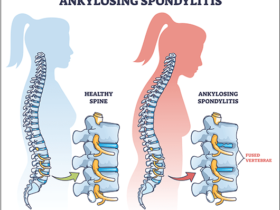As many as 5.8 million Americans are living with Alzheimer’s disease. That number could nearly triple to 14 million by 2060. Alzheimer’s is one of the top 10 leading causes of death in the US.
Symptoms usually appear after age 60, with the risk increasing as you age.
While younger people can get Alzheimer’s disease, it’s less common.
What exactly is early-onset Alzheimer’s? What early-onset Alzheimer’s symptoms should you keep an eye out for? Keep reading to find out.
After reading this guide, you can prepare yourself. If you or a loved one develops Alzheimer’s, you’ll know how to recognize the signs. Read on to learn more about this condition today.
What is Early-Onset Alzheimer’s?
First, let’s answer the question that likely brought you here: what exactly is early-onset Alzheimer’s?
About 5% of people with Alzheimer’s disease have early-onset Alzheimer’s. Alzheimer’s disease is a neurodegenerative or brain disease. It impacts your ability to recall memories and think.
Most patients with Alzheimer’s develop the condition in their 50s and 60s. With early-onset, patients can develop this disease in their 30s and 40s.
Alzheimer’s disease is a progressive type of dementia. Dementia is a broad term. It’s used to describe conditions caused by brain injuries.
It also describes diseases that can impact your behavior, thinking, and memory. The changes an Alzheimer’s patient might experience can impact their daily life.
There’s currently no cure for Alzheimer’s disease. It’s a chronic, ongoing condition. Symptoms can occur gradually, causing a slow mental decline.
Though there’s no current cure, treatment could slow the disease’s progression. Treatments might improve your quality of life as well.
Causes
For the most part, we don’t know why patients develop early-onset Alzheimer’s disease. In some cases, however, patients develop the condition due to genetics.
Some factors could increase your risk of Alzheimer’s, too.
One of these genetic causes includes deterministic genes. These genes guarantee a patient will develop a specific disorder. Deterministic genes account for fewer than 5% of all Alzheimer cases, though.
There are three deterministic genes that could cause this disease. It’s important to note that having these genes is rare, though.
Amyloid precursor protein (APP) is found on the 21st pair of chromosomes. It’s responsible for giving the body instructions to create a protein. This protein is found in the brain, tissues, and spinal cord.
Presenilin-1 (PS1) is found on the 14th chromosome pair. Variations of PS1 are one of the top causes of inherited Alzheimer’s disease.
There’s also presenilin-2 (PS2), which is located on the first chromosome pair.
Apolipoprotein E (APOE-e4) is a gene that can increase your risk of Alzheimer’s. It might also cause early-onset Alzheimer’s symptoms. However, having APOE-e4 doesn’t guarantee you’ll develop Alzheimer’s disease.
Researchers estimate that between 40 to 65% of people diagnosed with Alzheimer’s have the APOE-e4 gene.
Symptoms
Now that we’ve covered the causes of this disease, let’s discuss some of the signs of early-onset Alzheimer’s.
Most patients experience short lapses in memory. For example, you might forget someone’s name or misplace your wallet. Some people wander into a room and forget what they were looking for.
These aren’t definitive markers that you’ve developed early-onset Alzheimer’s, though. After all, everyone experiences a lapse in memory from time to time.
While they’re not definitive early-onset Alzheimer’s symptoms, it’s still important to watch for signs you’re at risk. For example, you might:
- Get lost on the way to a familiar place
- Have a difficult time following a recipe
- Struggle to speak or swallow
- Experience mood or personality changes
- Lose track of the day, time, year, or date
- Feel unable to balance your checking account (beyond occasional errors)
- Frequently misplace things and struggle to retrace your steps
- Struggle with depth perception or vision problems
- Start withdrawing from work and social situations
If these signs of early-onset Alzheimer’s sound familiar, consider consulting a doctor. Make sure to consult your physician if you’re younger than 65 and experience symptoms.
The sooner you consult a doctor, the sooner you can seek help.
Diagnosis
Unfortunately, there’s no one test that can determine if you have early-onset Alzheimer’s disease.
First, make sure to consult a doctor if your family has a history of Alzheimer’s. Early-onset Alzheimer’s disease affects about 220,000 to 640,000 people in the US. You’re not alone.
Your doctor will start by gathering your medical history. They might conduct a medical and neurological exam as well.
Before your appointment, make an effort to track your symptoms. In addition to the signs of early-onset Alzheimer’s mentioned above, you might experience:
- Depression
- Anxiety
- Increased alcohol use
Some symptoms can even seem like medication side effects.
Your doctor might decide to use magnetic resonance imaging (MRI) or computed tomography (CT) scans of your brain. They’ll likely use a blood test to rule out other disorders as well.
During your appointment, your doctor might also ask about your:
- Current or past health conditions
- Diet
- Alcohol intake
- Lifestyle habits
- Current or past medications
- Family medical history of other conditions
Once they’ve ruled out other potential causes of your symptoms, they might determine you have Alzheimer’s disease.
If you have a family member who developed Alzheimer’s before they turned age 65, consider consulting a genetic counselor. They can use genetic testing to determine if you carry a risk or deterministic gene.
Visiting a genetic counselor could help you prepare as much as possible before you start experiencing symptoms.
Medications
If you have early-onset Alzheimer’s, talk to your doctor about potential courses of treatment. Remember, there currently isn’t a cure for Alzheimer’s disease. However, detecting the condition early could help you start medication protocol.
Starting on medication could help you manage your symptoms. These medications might include:
- Memantine
- Galantamine
- Rivastigmine
- Donepezil
Donepezil and rivastigmine are ideal for early to moderate Alzheimer’s. These medications could help your brain maintain high levels of acetylcholine. Acetylcholine is a neurotransmitter that can support your memory.
Memantine can block the effects of excess glutamate. Glutamate is a brain chemical. It’s released in higher amounts if you have Alzheimer’s.
Glutamate could cause damage to brain cells.
Your doctor might combine medication with other therapies, too. For example, you can discuss:
- Minimizing your stress levels
- Using herbs and supplements
- Cognitive training
- Remaining physically active
Lifestyle changes might help you manage your condition. You can develop strategies to remain calm and avoid confusion. Some strategies can help you focus on daily tasks, too.
Otherwise, try to take lifestyle precautions to prevent cognitive decline. For example, you can:
- Add more antioxidants to your diet
- Exercise regularly
- Quit smoking
- Maintain an active lifestyle
- Eat a plant-based diet
- Try cognitive training exercises
You can talk to your doctor to develop a customized plan that’s right for you.
Stages
Alzheimer’s disease is progressive. Your symptoms will get worse over time. This condition is broken down into seven stages.
During the first stage, you might not experience symptoms. Usually, an early diagnosis is based on family history.
In the second stage, you might experience symptoms like forgetfulness. Make sure to keep track of your symptoms as they appear.
During the third stage, mild mental and physical impairments can surface.
For example, you might experience reduced concentration or memory problems. The people closest to you might notice symptoms before you do.
Usually, Alzheimer’s disease is diagnosed when people reach stage 4. The condition is still considered mild at this stage, though. You might experience memory loss or struggle to perform everyday tasks.
By stage five, you might start needing help from a caregiver or loved one. Most people need help with basic tasks like getting dressed by stage six.
Stage seven is the most severe stage. You could lose the ability to speak.
Consider developing a plan before your Alzheimer’s begins to progress into the later stages. You can get the help you need from loved ones or a caregiver. Seeking help can improve your quality of life during the later stages.
You can learn more about the early onset alzheimer’s life expectancy here.
Preparing
Getting diagnosed with early-onset Alzheimer’s doesn’t mean you’ll progress through the phases of the disease faster. Your condition will progress over the course of years.
Still, it’s important to plan ahead after you receive an official diagnosis. Otherwise, Alzheimer’s can impact your legal and financial plans.
First, remember that you’re not going through this alone. Connect with friends and family members. Their support could prove valuable.
You can also:
- Seek out a support group for other’s with early-onset Alzheimer’s
- Discuss your role with your employer
- Discuss disability insurance coverage with your employer
- Review your health insurance to make sure medications and treatments are covered
- Consider financial planning
- Have disability insurance papers prepared before you experience symptoms
Don’t hesitate to ask for help. Gaining help could make it easier for you to navigate through these steps.
Young Minds: Everything You Need to Know About Early-Onset Alzheimer’s
Early-onset Alzheimer’s disease can feel like a terrifying diagnosis. Catching it early could help you develop a plan ahead of time, though. Keep an eye out for these signs of early-onset Alzheimer’s before your condition progresses.
Searching for more helpful guides? You came to the right place.
Explore our latest articles today for more helpful articles.










